You no longer have to work your butt off to enter uni. After all, qualifications are just a piece of paper, right?
Well, some people take that a little too literally sometimes. And no, please continue working hard to achieve your dreams.
Because if you think that you can pull through with a counterfeit degree, that’s where you’re wrong.
While you can get a fake degree that looks much too similar to an actual one for about 30 times less than the average local university tuition, think again.
A Fake Degree for $1,000: Good Deal?
According to a Channel NewsAsia (CNA) reporter who went online to find out how to obtain a fake local university certificate, the answers were all on WhatsApp.
A community of forgers exists behind screens, making these certificates “according to the original, using the original paper and real seal.”
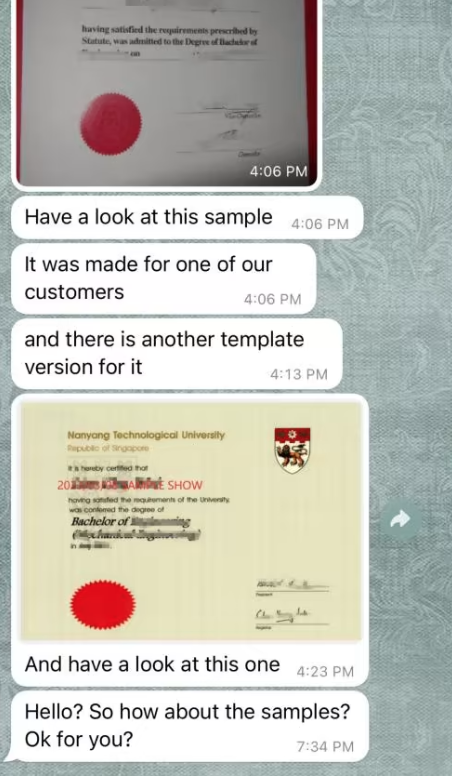
All four forgers contacted by the reporter presented samples that jarringly resembled the reporter’s own Nanyang Technological University (NTU) degree certificate.
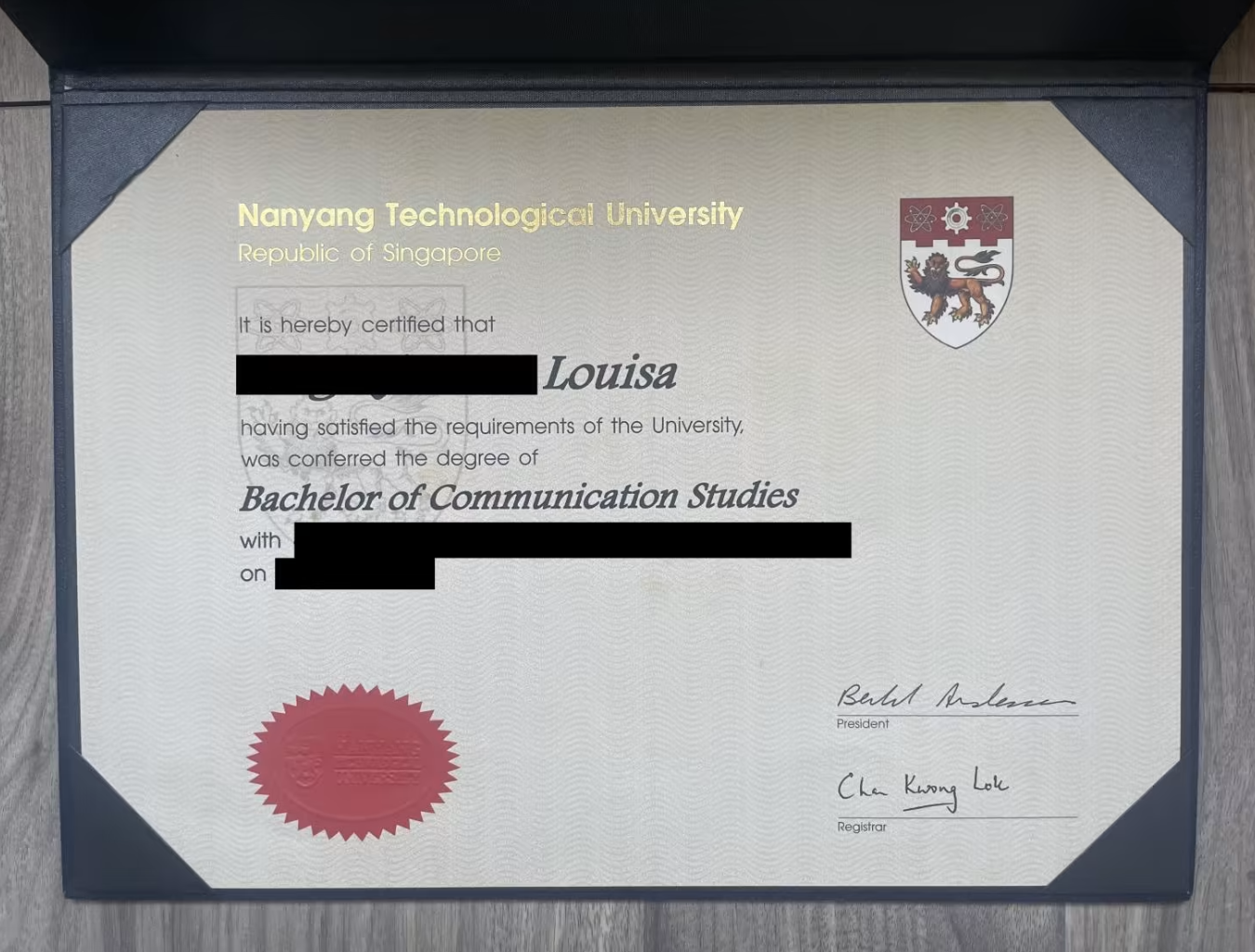
One provider offered to make the certificate for US$700 (~ SG$ 945), telling the reporter that the certificate could be produced in two to three days.

The above price was revealed to be a discount after the reporter mentioned that this was above her budget.
Eventually, the provider caved in and offered a price of US$630 (~ SG$ 850) and stated that they couldn’t go lower than that.
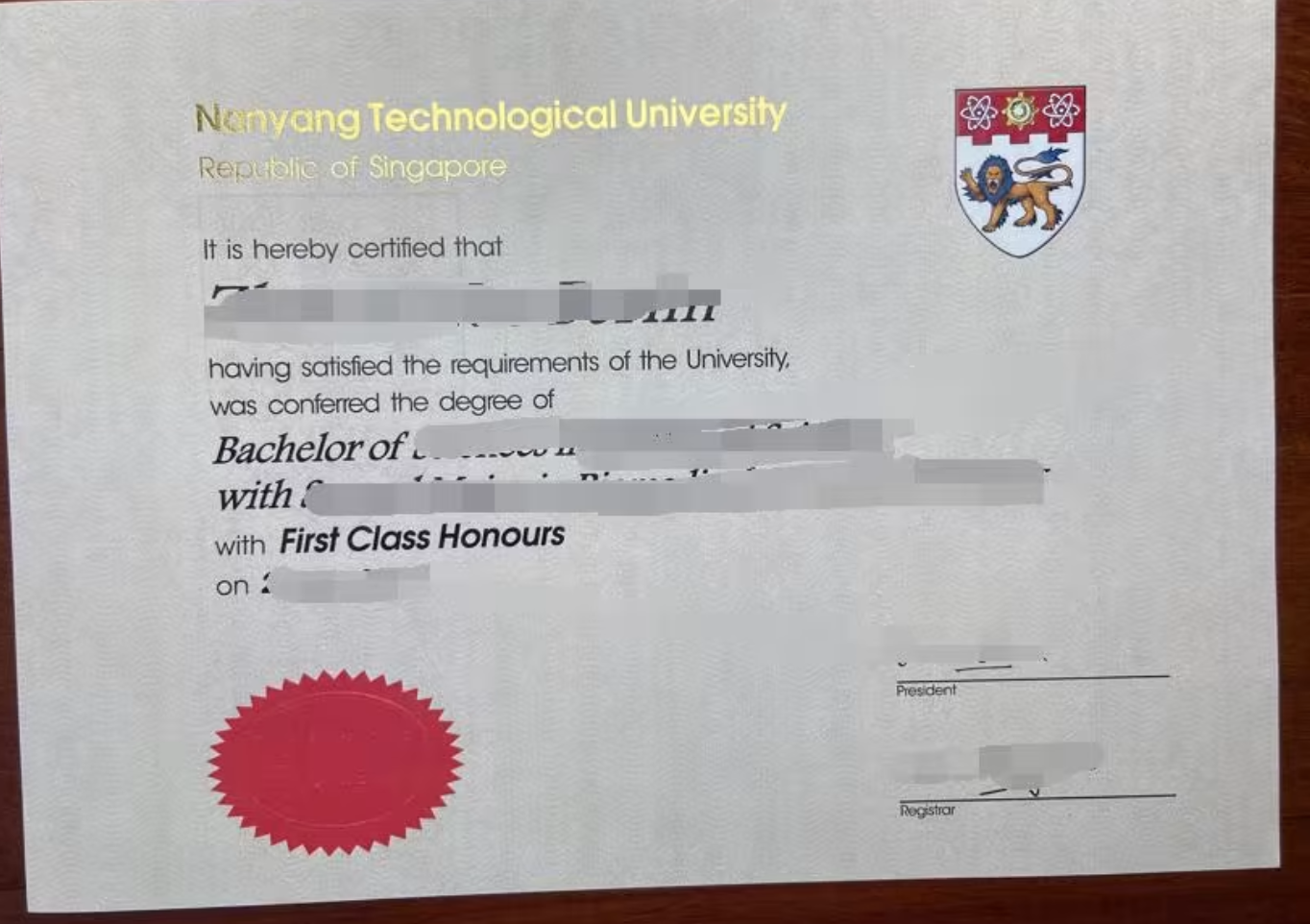
These forgers, who were found through websites with Hong Kong area codes, offered relatively similar prices, with the rest that she asked offering US$700 and US$750 (~ SG$ 1,010).
Funnily enough, these sites were reminiscent of Etsy, where tons of custom gifts are sold. You can customise your certificate by filling up an order form to provide details such as desired admission and graduation date, degree title, major and student identification number.
One of the providers even said, “many of our customers use our documents to apply (for) jobs and they succeeded.”
However, if you’re broke and think this is way out of your budget, you can do what many others do: design the fake degree yourself.
DIY, but with serious consequences
Technology has made it much easier to produce fake items, especially with a wide variety of tools such as Photoshop and even Canva.
Zhong Anqi Angela, 43, applied for a job as a centre principal at Al-Amin Pre-school Kindergarten in Tampines using a fake O-Level certificate.
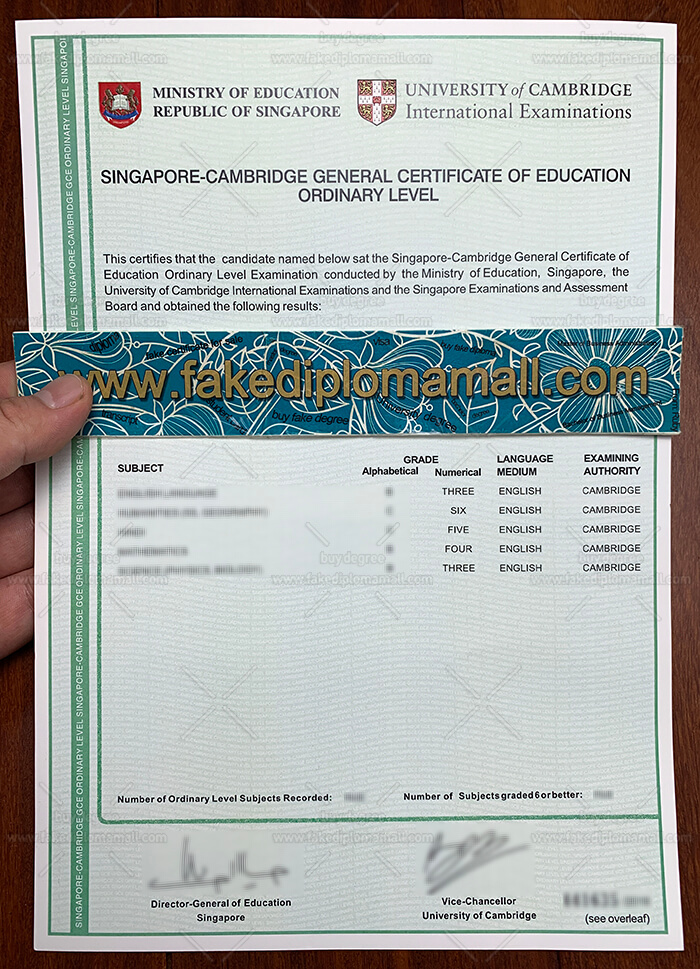
She had also faked the Letter of Notification of Categories of Teachers (LON) required of preschool principals.
She had manufactured the fake documents by finding copies online and editing them using the Microsoft Paint application.
The O-Level certificate stated that she sat for the examination in 1995 and obtained a B3 in English language. In reality, she had sat for the exam twice in 1996 and 1997 and got a D7 grade both times.
She pleaded guilty to two counts of forgery and was sentenced to two weeks in jail earlier this year.
Another man was fined $4,000 for forging a National University of Singapore (NUS) computer engineering degree certificate.
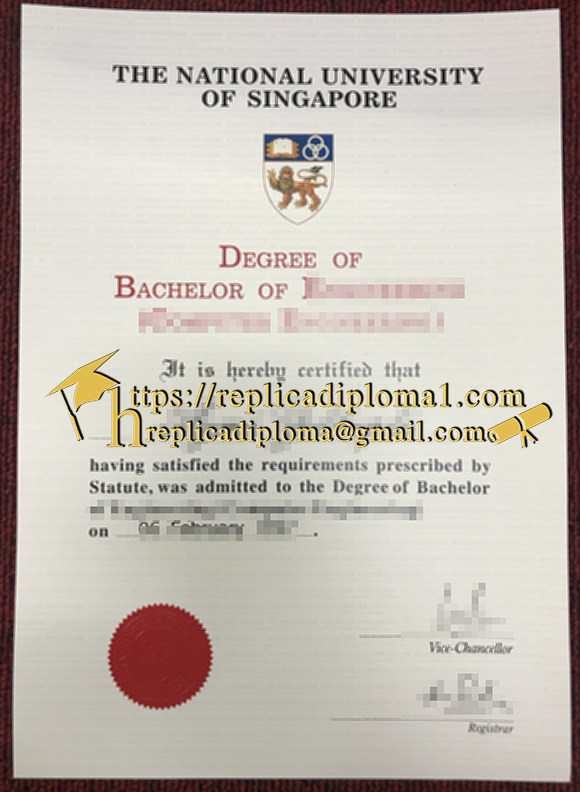
He had gotten a job as a teacher in an international school and was caught after the school verified his documents with NUS.
Institutions Also Use Technology to Their Advantage
Ms Linda Teo, country manager of recruitment firm ManpowerGroup Singapore, said, “educational institutions and training providers are implementing more measures to make it harder for their certificates to be forged.”
Such measures include blockchain technology to make certificates tamper-resistant and issuing serial numbers to certificates to be verified on websites.
Many educational institutions, including all polytechnics, autonomous universities and the Institute of Technical Education (ITE), use OpenCerts, which utilises blockchain to verify graduates’ transcripts.
Qualifications Aren’t All That
Jobs are now shifting towards an aptitude-based approach.
According to Ms Zen Soh, manager of commerce finance at Robert Walters Singapore, more employers are carrying out case study assessments in their first round of interviews to assess candidates’ technical competency better.
Despite some candidates listing courses relevant to their jobs in their resumes or excelling in their face-to-face interviews, more is needed to ascertain that the candidate is fit for the job.
So although some may have stellar qualifications, not passing the technical stage of hiring will cost them their position.
Employers may also “ask them technical questions during the interview to ensure that they have the required knowledge level,” according to Ms Teo.
As for the verification of one’s qualifications, companies are taking extensive steps for this by confirming them with third parties.
The Ministry of Manpower (MOM) also implemented a mandatory requirement earlier this month for companies to verify the educational qualification of foreigners on Employment Passes.
So the next time you think of forging anything, remember that it’s pretty much impossible to get away with it.
Blame technology all you want, but don’t take the easy way out.




